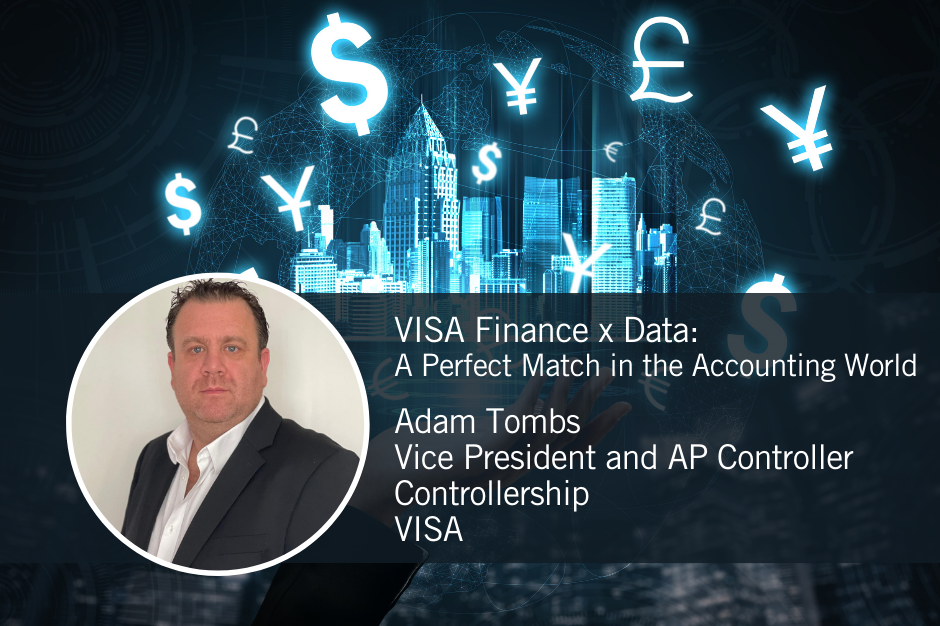A change of mindset fundamental to data transformation in the accounting world
With data transformation becoming core to every finance and accounting process, data science and thinking about data is "no longer a luxury", according to Mr. Adam Tombs, Vice President and AP Controller, Controllership, at VISA, in the recent SMU Accounting Masters Industry Talk Series titled VISA Finance x Data: A Perfect Match in the Accounting World
In order to ride this wave of data transformation, a change of mindset is fundamental, he stated.
"One of the things I'm realising now is that everything we do is some kind of data transformation. However, we tend to be behind the curve in data, and one fundamental change required is the mindset of accountants and finance professionals to think about data not as a specialty or a side gig. Every accountant in every company is manipulating data – churning, cleaning, consolidating and pushing it through to the financial statements. Every department in our company will come to the realisation that we are taking on different forms of data, whether quantitative or qualitative. Such a mindset has not really taken root in most other companies as yet."
This mindset shift would essentially allow businesses to recognise the importance of data transformation and enable adequate investment in these areas, turning uncertainty and complexity into something structured, sensible and insightful.
"I value the insight that data can bring, and it is not only about doing things quickly but also about building impact and output that's productive and useful for end-users. As graduating students, start your journey thinking about this and do not underestimate the value of design thinking, especially in understanding the voice of the customer and incorporating their wants when building things," Mr. Tombs continued.
One way in which to help change this mindset is by "lending" his teammates to some of his peers and bosses, in order to demonstrate what the team can do.
"As soon as you can show them how everything we do is about data transformation, we can try and convince them that this is an essential need and not something we should term as being extra when adding to the team. If we want to be scalable, if we want to survive, if we want to beat the competition, this is a necessity," he affirmed.
To do this, Mr. Tombs shared that at VISA he has been able to build a team of data specialists that can think about data in a sensible, coherent way.
"What we can take is noise, uncertainty, volume, drive it through a process, standardise it, bring insights and bring valuable outputs that are not only valuable for us as accountants but also useful for our business partners in terms of insights into their business," he revealed.
While data transformation could seem overwhelming, the future holds the promise of efficiency and incorporating other types of data into the mix.
"I think one of the most exciting parts of the future that we can talk about is the predictive capability of data, where any insights I can get in what's going to happen in the future will allow me to plan and operate as a business more effectively.
"The other interesting area is really moving out of numerical data and into the brave new world of all the other types of data information we have. In the old-school mindset, people think about numbers when they think about data, but data is much more than that. And one of the most interesting things for me is what we're going to do next with the other types of information we have. There's so much in that space that remains untapped, certainly in the finance world, but that's an area for us to really think about," Mr. Tombs added.
That said, he advised students to start thinking about where they can go in their careers. "We're at the start of the journey and that's the exciting part. Some of the skills you have and some of the skills that my team has now are currently known as 'superstar' skills. But I can see that in the next 5-10 years these would become a prerequisite for everyone. The reality is that we will need to do more with less, and deeper and more integrated skills will be highly critical to advance the finance functions in many companies. So instead of humans doing the work, the computer will be doing the work and we'll need to take data out of those systems, understand how to maximise the capabilities of those systems and use data as our friend."
Additionally, having a" low tolerance for wasting your own time" would be efficient, he said, adding that it is important to be "thinking about how to do things better, quicker but still maintain that quality and output."
"The most important thing is the willingness to not only ask questions or be inquisitive, but also to have zero tolerance for time-wasting, inefficiencies while retaining empathy for the stakeholders. I think that is a key perspective that finance professionals should have, as we tend to be rule-bound and expect structure in most situations. One of the challenges is to think outside the box and be a bit more creative in thinking about what other folks need or use, so that design-mindedness and openness to new ideas is a very important part of your development process," he concluded.


